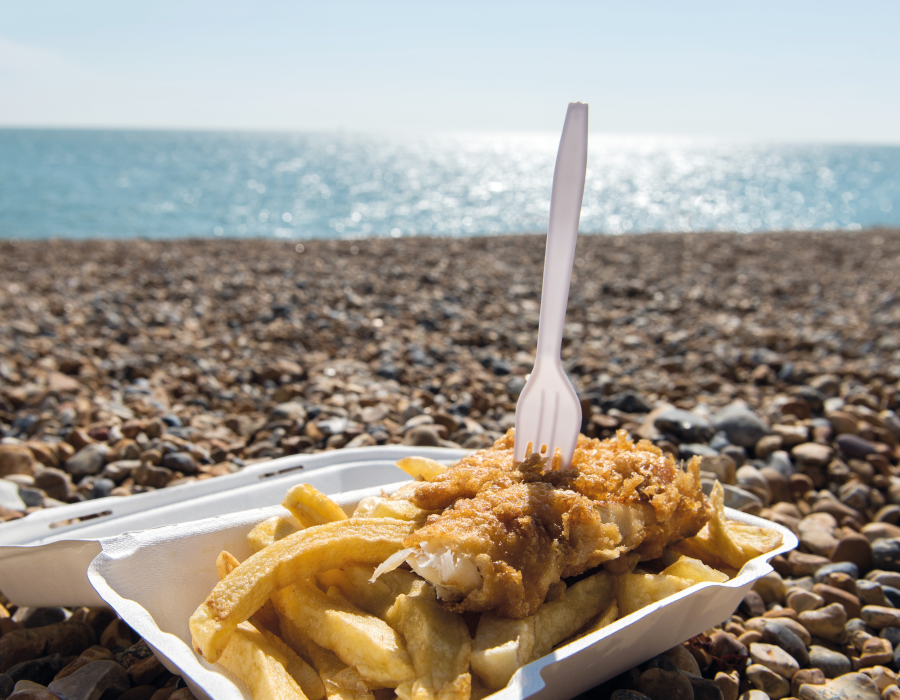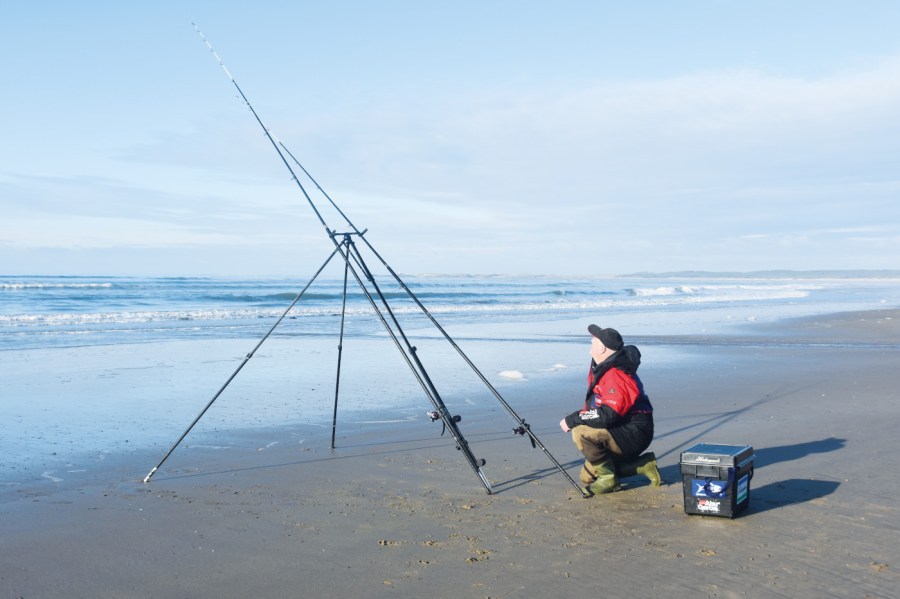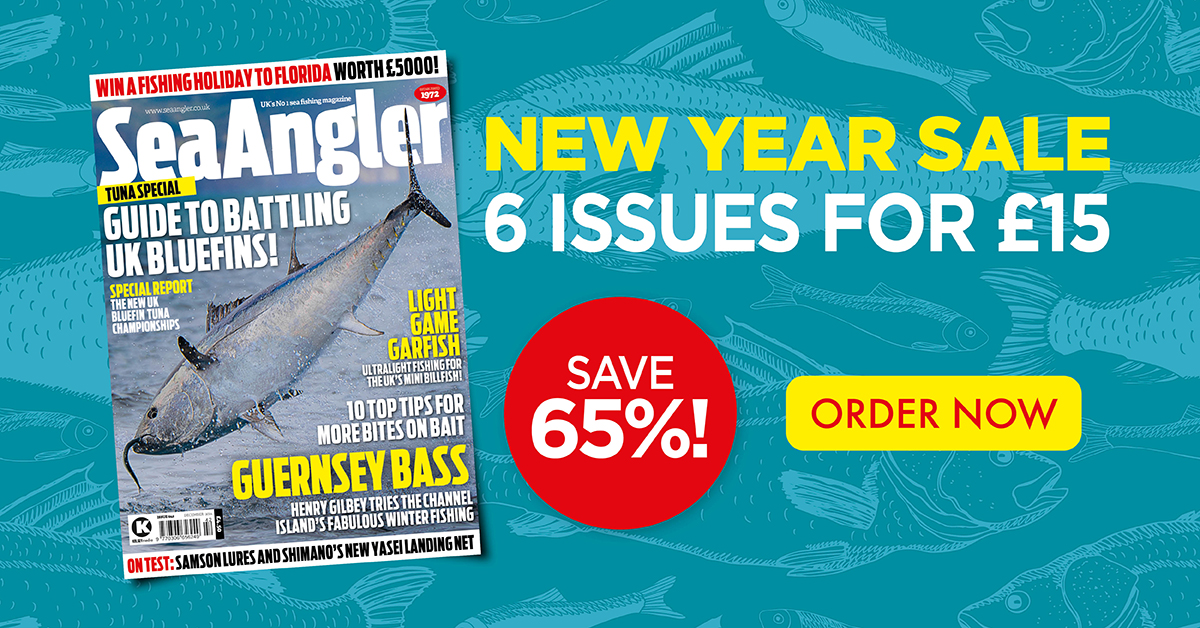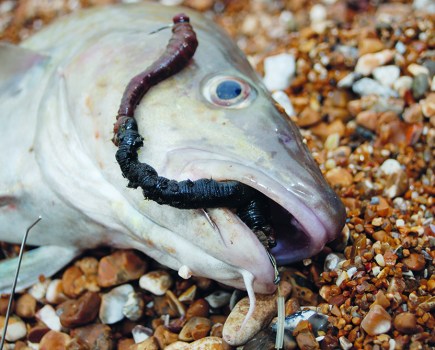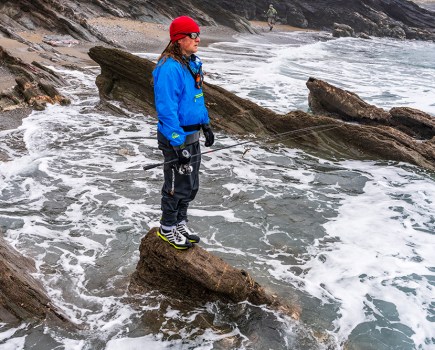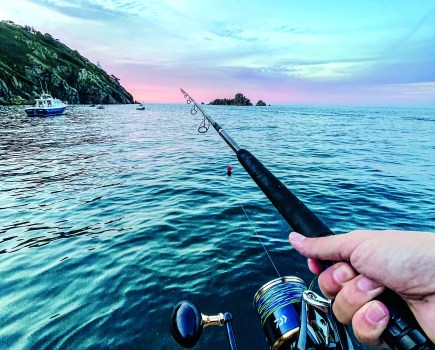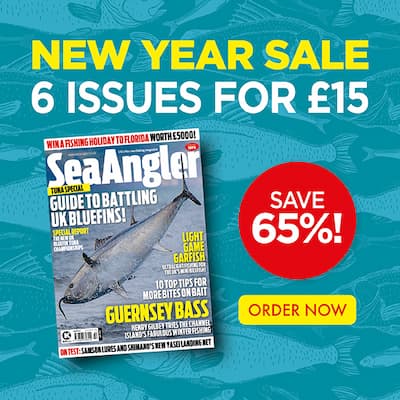Sea Angler asked two contributors to help readers keep fishing this winter with their top money saving tips to keeping fishing affordable
Most of us will see fishing as a therapy which promotes good mental health and wellbeing. Like most other people at the moment, my life has been seriously affected by the cost-of-living crisis. Fishing is so important to me, so much so, I cannot even start to imagine a life without it. Perhaps we now need to face the fact that we must function in our daily lives with less of a disposable income, but does that mean we have to sacrifice things we love doing, like fishing?
When faced with serious problems in life I try not to panic. Instead, I think and work desperately hard to come up with some sort of solution. Please don’t get me wrong. I completely understand that we all have different priorities in life and that my desperate need to go fishing could be seen as a selfish one. Especially when there are people out there with far bigger problems at the moment. Even so, I want to share some money saving ideas on how we could continue to enjoy our fishing in these difficult times.
Some of these money saving ideas may seem pretty obvious to a lot of you, but remember that everyone is different and inspiration can come in many different forms. For those who are already aware, perhaps this article could be that gentle reminder and that little push needed in order to get these things done. Most of these money saving ideas will take effort, some rely on good leadership skills, most will be less convenient and more time consuming. One way to look at it, if we can’t free up money, can we free up some more time or at least make better use of the small amount of time we may have available to us.
Sharing travel expenses
Although fuel prices in the filling stations have come down slightly of late, they are still cripplingly high and that means travel continues to be a huge drain on our finances. Some anglers may already have a big friends group, full of like-minded people who enjoy fishing, but not everyone will be so lucky. There are loads of people out there who struggle to find someone new to go fishing with. In the past I’ve been quite happy to travel and fish alone.
These days, because of rising fuel prices, I’ve been making much more of an effort to travel and fish with other anglers. Making new friends is not easy, it takes effort, but the fact we already have a massive common interest should make things a whole lot easier. You may think good networking on social media might be the best answer for making new fishing friends, and this could well work for some people.
Personally, before organising a lift share or arranging to join someone fishing, I prefer to meet people in real life first. One of the best ways to make new friends who share a passion for angling would be to join a local fishing club. Another great way to meet like-minded people who enjoy fishing is through angling competitions.
Over the years I have made all of my best friends through club and competition fishing. I’m certainly not saying that everyone you share a lift with has to be your best mate, but it is nice if you make some effort and get to know someone first. Remember, lots of other people are in the same boat as us, trying to find ways to cut down on things like travel expenses.
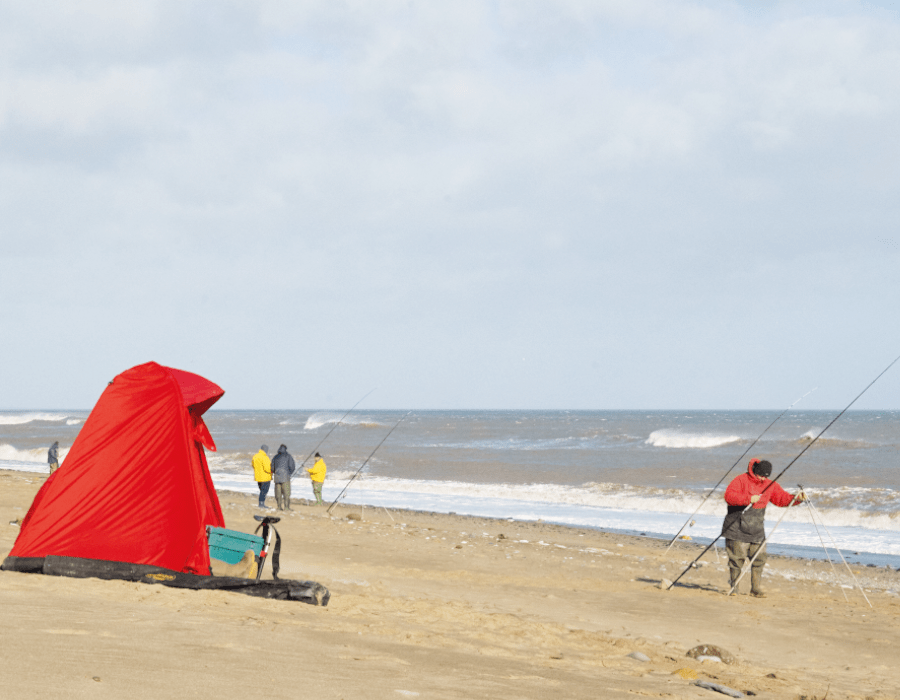
Better bait management
Bearing in mind that most of us will already have enough equipment to get out and do some sort of fishing, bait has to be one of our biggest expenses. Above all else we cannot afford to waste any bait. We must also be more strategic about how we buy or gather it, and then how we prepare and store it. In the past, I have been as guilty as the next person when it comes to buying too much bait for a session. When money has not been an issue, we may have this attitude where we’d rather have too much than not enough. Obviously we can’t continue to enjoy such luxuries when we have less disposable income. Buying bait has also been a matter of convenience for me in the past, when I could have gone out and gathered my own. If we can afford the time, collecting our own bait will obviously save us money. Of course, many anglers won’t have that as an option and will have no choice but to buy their bait. Learning how to correctly store live bait is an extremely important factor, which can dramatically cut down on waste and save you a lot of money. Maybe you need to seek out that bait fridge you have always wanted, buy some cheap plastic trays and make sure you always have a supply of fresh seawater. After all, once we have gathered or bought bait we need to look after it and make sure it lasts. There is also a lot to think about when it comes to storing frozen bait. Good organisational skills are really important. If you are serious about catching and freezing your own bait in order to save money, I would seriously consider buying yourself a vacuum-packer, because only then will you really be able to seal in the bait’s freshness long-term. This would be another good investment which could save you a lot of money in time. If not, you can always use self-sealing freezer bags or cling film. I would definitely recommend dating all of your packages in the freezer, making sure you use the older bait first. If you are planning on bulk buying your frozen bait in a bid to save money, then you may want to look further than your local tackle shops or online bait supplier. That is not to say you won’t get a good deal in your local fishing tackle shop but there could be other good deals available. For example, if you could gain access to a large frozen fish wholesaler, you may be able to buy some bait in bulk for a really good price. It is also worth keeping your eyes peeled in local supermarkets. I would avoid the fresh fish counter in the supermarkets because they are often selling fish for inflated prices and the freshness of that fish can be somewhat questionable. When bulk buying frozen bait you should still make the effort to either vac-pack, use cling film or separate into self-sealing freezer bags and clearly date each package. I can’t reiterate enough how much money a well organised freezer could save you. Try to break down your frozen baits into reasonably small packages and only take fishing what is likely to be needed.
Buy, sell, swap
Most of you reading this article will already have enough equipment to get out and enjoy some sort of fishing. Having said that, this doesn’t mean we won’t want to change, update or replace some of our fishing equipment. Like many other anglers in the past, I have frequently enjoyed a lot of impulse purchases. Quite often it’s a new fishing rod or reel that I don’t really need. Now money is tight, I for one have to be a lot more frugal with my choices when it comes to spending money. As times have dramatically changed for me, most notably the size of my bank balance, I now have to start thinking about different ways of acquiring the fishing equipment that I need. There are ways for us to acquire fishing tackle without parting with any cash. The fishing related buy, sell and swap platforms on social media are now working overtime. While you could sell your fishing equipment, save up the cash and buy new it now seems far more beneficial for me to swap certain pieces of second-hand fishing equipment. So far during this cost-of-living crisis I have observed the price of second-hand fishing equipment dropping dramatically. It has since occurred to me that rather than getting well below reasonable price for my second-hand fishing stuff, I would actually be much better off swapping it for something instead. While this could take a fair bit of nerve, along with some good negotiation skills, all you really have to do is find someone who really wants what you have and has got what you really need.
Making club and competition fishing more cost effective
Good leadership skills are so important in times of crisis. I am personally very aware of how much time and commitment it takes in order to run a successful fishing club or open competition. We must all think about how those who commit and give up their time running fishing clubs and events will be finding it increasingly difficult to do so in the current financial climate. With this in mind, if you think you are able, perhaps it’s time for you to step up to the plate and offer your assistance. After all, more hands make for less work. As I run and organise fishing events myself, I’ve been busy thinking about ways of making my club and open events more cost effective. A lot of these ideas are not new but nevertheless, I think it’s time to start implementing some of the following ideas into my events. There are many ways we could help the members reduce their bait bills when fishing our events. One of the best ways would be to team up with a local tackle shop or bait supplier and run bait supplied only events. This is not a new concept, but I think it is one which could be adopted by more event organisers. Those competitors fishing your event or competition may only use the bait that you supply. There are many beneficiaries when running bait supplied competitions. Essentially, you, as the fishing event organiser, will be buying bait in bulk from a supplier and because of that deals on the price of that bait could be negotiated. You then advertise a fixed price for that bait to competitors and this should be somewhat cheaper than what most anglers would ordinarily pay. Not only could you be saving those fishing a considerable amount of time, money and travel expenses. You would also be levelling the playing field in your event. Another thing you could consider is all-out blanket bans on some of the more expensive baits. An all-out ban on crab would seem like a good idea to me, seeing as it’s one of the most costly and hard to get hold of baits. Banning crab could save your members an absolute fortune in time and money. Reducing the amount of rods and hooks allowed to be fishing in an event could also be another good option. Less hooks fishing in the water at any one time would mean a lot less bait would be needed from the outset. Making events more affordable should encourage a few more competitors to enter and at the moment that is more important than ever. A good leader should get to know all of their membership and be able to couple the right people together in a vehicle for lift shares. The same could be said with regards to booking accommodation for multiple day fishing events. After all, deals can be done on larger group bookings. Basically, the cheaper and easier you make it for people, the more likely they will be to attend your fishing events.
Social media group platforms
As we have been heading into this cost-of-living crisis throughout the course of this year I have noticed some really helpful groups starting up on social media. One of the best ideas I’ve seen was on Facebook and started by an angler from Weston-Super-Mare. Charlotte May Sperrin has created a group called Fishing Buds. The group is specifically for anglers and is a place where like-minded people can meet. The idea is for anglers to meet on the group page, arrange to go fishing together and then possibly become fishing buddies. This group also promotes good mental health, and goes on to explain about how she hopes the group will make fishing more affordable for its members. Charlotte has already come up with some great money saving ideas such as passing on leftover bait after a session to another group member in your area. Charlotte also hopes that the group will be helpful for anglers who are looking to share lifts, helping people with travel expenses. She also told me that the buying, selling and swapping of fishing equipment is now allowed in the group. As I have observed, this Facebook group, along with a few others, are growing in popularity fast and I can see why. Bearing in mind the current cost of living crisis, groups like Fishing Buds are needed and serve the angling community really well.
A fishing account
I wasn’t born into a wealthy family, so learnt from an early age to be thrifty. I was pretty much skint in the late 1980s too, due to house buying and all the usual family things when first starting out. However, one thing that made a difference was I opened a separate fishing account with the then Giro Bank. If I had any spare cash when everything was covered, I’d filter away a couple of quid here and there and over time it slowly builds up. Pick a savings account that pays interest, which is now 2 per cent to 3 per cent on some accounts and set to climb higher, and you have a double positive hit. To this day I still have a personal fishing account. It separates fishing money from domestic money, simplifies what I have available to spend, and adds incentive to save for any targets I have.
This is also a good time to have a look through your rods and reels and declutter. Anything you rarely use or don’t need, then consider selling them locally via shop adverts, Facebook, or eBay and add that money to your fishing account. The money then is generated from what you already have and not from any normal income.
Tackle shop discounts
A growing number of tackle shops have adopted an American system where you pay a set sum, say £20 upfront, then for the next 12 months you get 10 per cent off all your purchases. Some include bait, some don’t, as profit margins on bait can be tight, but even with just tackle, it’s worth working out potential benefits over the year as it can, depending how much you’re able to spend, save a substantial amount, especially if you replace rods or reels. Even simple purchases such as packets of hooks, swivels, line and leads will quickly add up and you’ll likely see a positive return on your original outlay to help reduce overall costs. This system is also good for the tackle retailer as it guarantees him or her a customer for the next 12 months and helps keep them ticking over. This coming recession is going to be hard on the high street shop and none of us want to lose our local tackle dealers who do a great job in providing what we need to function. I live in an area where proper tackle shops are 50 miles or more away. I use tackle shops in Shrewsbury, Chester and near Menai Bridge when passing, but inevitably online shopping is a necessity for me. It’s easy enough to go online and find the cheapest prices, but many of us fail to read the small print. Delivery fees can sometimes be eye watering. I know a couple of online retailers and they tell me people often order £18 of gear and pay £4 delivery, when purchases over £20 are delivered free. Always check the delivery fees and unless some item is needed desperately wait until you can put together an order that negates the delivery charge. Some of the bigger online retailers have free delivery over £15 currently, so you only need a few packets of hooks to qualify and can save a good sum, and more so if the items are cheaper than what you can get elsewhere.
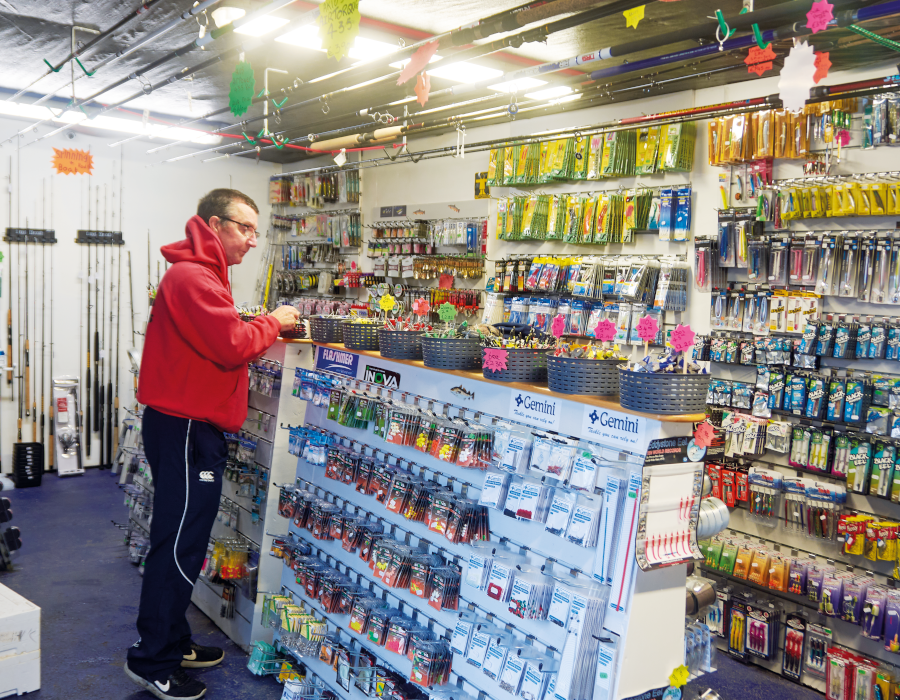
Buy in bulk
Buying tackle items in bulk can save you a lot of money. I use large numbers of Kamasan B940 Aberdeen’s. A quick look online found a box of 100 size 4s advertised at £19.99 with free delivery. They are also listed in packets of 10 costing £2.50. 100 by packet is £25 but by box £19.99 saving you a fiver on something you likely use pretty much every trip. I appreciate it’s not always possible to have that spare £19.99 available and the packets are convenient, but if you can afford the initial outlay, then it can save you a fair chunk of money over time. Bulk spools of line are another way to dramatically save a good sum. I found online a 1/4lb 650yd spool of 20lb mono in a popular make for £10.99 with a delivery fee of £4, so £47.96 in total if you bought four spools to achieve the bulk spools 2600yds. To be fair two outlets were advertising the same 650yd spool for 8.99 plus delivery, but neither had stock which is often the case when a cheaper price is offered. A further search located a 2600yd bulk spool of the same line for £37.80 with free delivery. A saving of £10.16. Not bad for a quick look on the Internet! Yes, lashing out nearly £40 again might not be possible, but if you fish with a buddy who uses the same line, then buying the spool between you still produces a nice saving. Also check out buying swivels, links, bait clips and so on in bulk. As one well known supermarket says, “Every little helps!”
Recycling
Recycling is a very important part of keeping our costs down. We need to regularly check mono line for scuffs and nicks. If you find there is obvious abrasion in the forward section, you can reverse the line putting what was on the base of the spool on top. This doubles the life span of your line. You can do the same with braid too. We’re all guilty of throwing used rigs in our boxes and then forgetting them. Next time you look the hooks have rusted due to salt corrosion. If you carry a small plastic pot with a lid in your tackle box and put used rigs in these, it’s easy when you get home to rinse the rigs under a warm tap and leave them somewhere safe to dry. This eliminates rusting of the hooks and components. Cleaned and dried rigs can last several trips meaning you’re tying less rigs and using fewer hooks and components. This applies to plugs and lures too. Hooks rust quickly and if you put a used plug in with other plugs, they all get contaminated. Carry an additional plug box or container for used plugs then wash and dry them when you get home. A quick spray of WD40 and no additional damage is done. Same with spinners and soft plastic lures. Slightly off track, but also fully wash and dry reels and rods to remove salt. And once every two to three months, depending on the number of trips, give rods two coats of car turtle wax. The wax builds up a patina of protection and stops the rings and fittings suffering as much corrosion prolonging the life of your rods and better maintaining their value. Making your own leads is still something I do as I lose a fair few. A mould will cost you between £12 for a two-bomb mould and up to £25 for a 4 x 1 mould covering 3oz to 6oz leads. I’ve got moulds that are close to 40-years-old and well used, so it’s a one-off investment that will pay back for decades. Lead can usually be scrounged for nothing or peanuts from trades people or friends undertaking repairs if you ask and you’ll soon build up a stock. A glance online found a packet of 100 lead loops for £1.75, and a 25ft coil of stainless steel 18g wire for the release wires retails for about £2.30 so you’re making leads for pence. Just make sure you melt lead outside with ventilation. I do mine on a portable gas stove and a mate even uses his patio Chiminea, so you don’t need anything special.
Ditch the takeaways
I know, this one is going to hurt! The fact is though, that takeaways while fishing really add up. Even fish and chips these days you’re looking down the barrel of a £8. You can save a fair wedge of money if you make enough sandwiches for the shorter trips. The alternative, and an option we use a lot nowadays, is to take a small stove for brews and take a homemade curry with us, knock up a bacon or sausage sandwich, or a pasta dish. It takes no real time and means we can eat when we want on the longer trips. Most camping outlets do a square Chinese made single burner stove that runs on gas cartridges for around £15 currently, all stacked away in a plastic case. Gas cartridges for these are about £12 for four but shop around. I have a small camp stove I bought for about £25 that folds up to nothing, and we use that mostly. The same shops do cheap lightweight kettles and pans if you go down that route. For the outlay of a couple of decent takeaways you’ll be self-sufficient.
